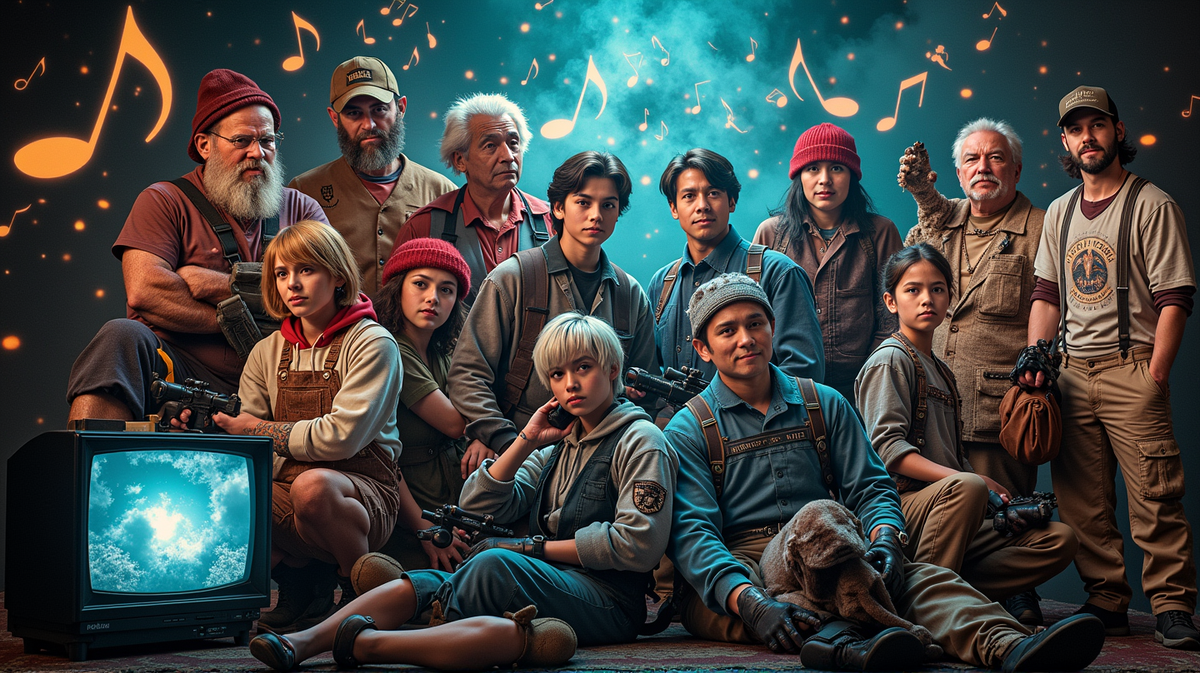From Pixels to Popcorn: Video Games Make a Cinematic Breakthrough
Video game adaptations have finally hit their stride, with successful movies, TV shows, and music capturing fans' hearts according to SOURCE_LINK.

For decades, the mere mention of a video game adaptation for the screen would make fans cringe, as past attempts had left a lot to be desired. However, recent years have seen a turnaround that’s nothing short of magical.
A Legacy of Struggles
In the 1990s and early 2000s, moviegoers were treated to less-than-stellar adaptations of iconic games like Mortal Kombat, Street Fighter, and Super Mario Bros. These adaptations were largely panned, reflecting the challenges and missteps of translating interactive experiences into linear storytelling.
Not learning from past mistakes, the 2000s continued with mediocrities like Assassin’s Creed and Prince of Persia, making one wonder if faithful adaptations were even possible. The release after release of underwhelming content whittled down expectations from audiences everywhere.
A Renaissance for Adaptations
Recently, a remarkable shift has occurred, moving the needle from skepticism to anticipation. With a more mature approach, studios decided on the suitability of the medium for storytelling, as seen in HBO’s ambitious The Last of Us, which spins a harrowing and enriching tale over a season-long series instead of crunching the experience into two hours.
Amazon Studios took a different strategy with Fallout, weaving a new tale that welcomed fresh eyes and new stories, resonating with both seasoned fans and newcomers. These efforts showcased a growing understanding of the idiosyncrasies required to successfully adapt video games to other formats, by respecting the essence of the original content rather than forcing it into ill-suited molds.
Capturing the Box Office
When it comes to cinema, recent successes like the family-friendly Sonic trilogy and The Super Mario Bros movie have shown that aligning the right game with the right format can indeed result in blockbusters, raking in billions at the global box office.
Such achievements have paved the way for upcoming projects like the God of War show and a potential Legend of Zelda movie, igniting excitement and speculation over potential new franchises.
Harmonizing Gamers and Music Enthusiasts
But it’s not only in movies and TV where video games shine. The soundtracks of these digital worlds have been increasingly celebrated, bringing gaming scores into the concert hall. Iconic composers like Bear McCreary and Gustavo Santaolalla have created music that doesn’t just accompany gameplay but tells its stories, evoking emotions as potent as the games themselves.
Recent concerts, like PlayStation’s global tour, have blended breathtaking live visuals with orchestral brilliance, creating a sensory experience that transports audiences back into the heart of their beloved games without ever picking up a controller.
A Promising Future
As video game adaptations mature, we witness an industry increasingly aware of the nuances required to successfully bridge the gap between gaming and other entertainment forms. Where cash grabs once ruled, there’s now a growing respect for narrative integrity and audience expectations.
The result? Brilliant adaptations that not only remain true to their origins but also attract legions of new fans, creating a symbiotic relationship that benefits both the realms of gaming and cinematic storytelling. As seen in recent trends and successes, it seems like video games as multimedia experiences aren’t just a blip on the radar—they’re here to stay and thrive. According to BreakingNews.ie, we are just scratching the surface of what’s to come.





